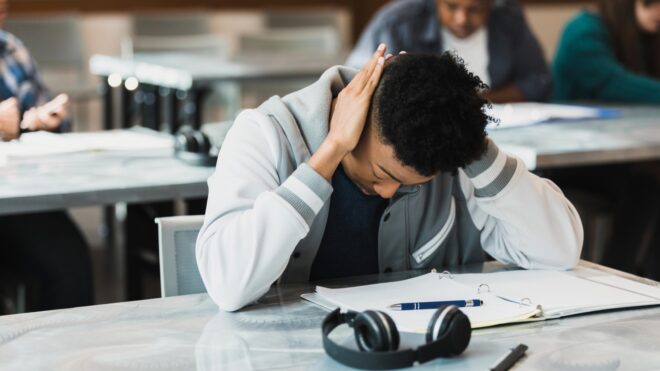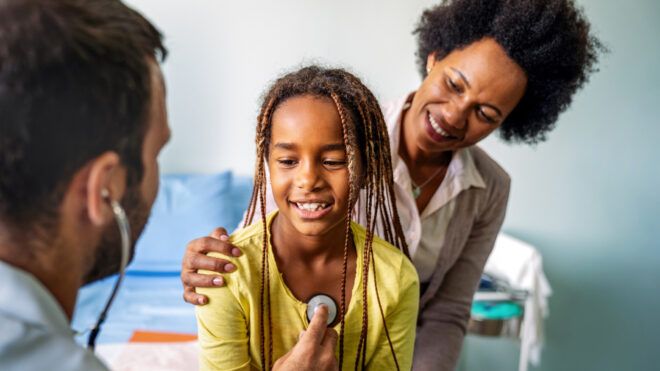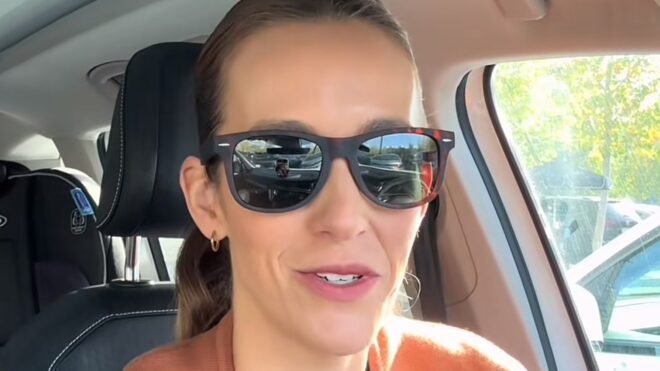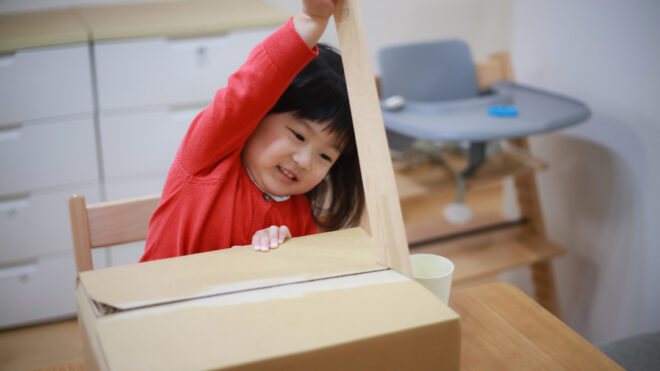The media and entertainment landscape that we grew up with looked a lot different than it does for kids today. We had televisions, landlines, radios, VHS, CDs, and DVDs — oh, and some had pagers. If a friend wanted to catch up with us, they would usually have to call the house and make chit-chat with our parents first.
Today, toddlers are playing on touchpads and teenagers are attached to their smartphones 24/7. Even as parents, we have trouble putting our phones down. Since social media became widespread in 2012, anxiety, depression, and loneliness have increased significantly among teens.
On Our Sleeves is the national movement for children's health. We spoke with On Our Sleeves Executive Clinical Director Dr. Ariana Hoet about her thoughts on how social media has impacted the mental health of kids today, and asked her for tips on how parents can talk about it with their kids.
Hoet works in pediatric primary care, where she serves primarily Latino and Somali immigrant children. An immigrant to the US from Venezuela, she has been recognized for her work within the Spanish-speaking community.
She is also a clinical assistant professor of pediatrics in the Department of Pediatric Psychology and Neuropsychology at Nationwide Children's Hospital and The Ohio State University, with a role in training the next generation of behavioral health professionals. She has become a go-to national expert for outlets including USA Today, CNN, and Good Morning America because she is a vital public voice for youth mental health.
The work of On Our Sleeves and Hoet also helped draw the US Surgeon General Dr. Vivek H. Murthy to Nationwide Children's to discuss the country's growing pediatric mental health crisis. Hoet earned her bachelor's degree in psychology from Ohio State University and her doctorate in clinical psychology from the University of North Carolina-Greensboro.
More from CafeMom: How Young Is Too Young for Kids to Join Social Media?
How Kids' Mental Health Changed in the Past 10 Years
According to data analyzed by the Centers for Disease Control and Prevention, 1 in 5 children in the US were living with an impairing mental health diagnosis between 2009 and 2019.
Hoet elaborates on that, saying the "pandemic exacerbated these numbers, leading to an increase in symptoms of depression, anxiety, suicidal thoughts and behaviors, eating disorders, and substance use, among others."
The Impact of Social Media on Kids' Mental Health
There is a negative effect of social media on kids' mental health. It ripples throughout all areas of their life and increases their risk of developing mental health concerns. Specifically, Hoet tells CafeMom that "social media has been linked to increased symptoms of depression and negative body image."
Hoet explains that the constant need to stay connected on social media can prevent kids from maintaining important health habits, such as "sleep and physical activity, which are necessary for mental health and wellness."
The more time children spend on social media, the less time they have to do offline activities, such as "socializing or hobbies, leading to isolation."
Lastly, social media can increase a child's risk for various social and emotional issues.
Hoet shares, "Social media can lead to high levels of social comparison, exposure to cyberbullying or hate speech, and access to content about risk-taking behaviors — all things that concern us when it comes to a child's mental health and behavior."
Hoet offered some important tips that parents can try to help address their concerns about social media with their kids.
How To Talk to Young Children About Mental Health & Social Media

Build the habit of talking to each other. This helps create a healthy relationship between the child and the adult, which we know is an important protective factor for a child's mental health. On Our Sleeves has a free resource to help families start and continue these conversations.
Normalize the conversation around mental health and emotions. Teach kids how to label, identify, and cope with their emotions from a young age. On Our Sleeves offers step-by-step recommendations.
Learn about the risks and benefits of access to social media. Consider limiting access to social media until a child is developmentally ready to understand safe use and adhere to safety rules and limits.
More from CafeMom: My 8-Year-Old Threatened To Self-Harm & It Was a Huge Wake-Up Call
How To Talk to Pre-Teens/Tweens About Mental Health & Social Media
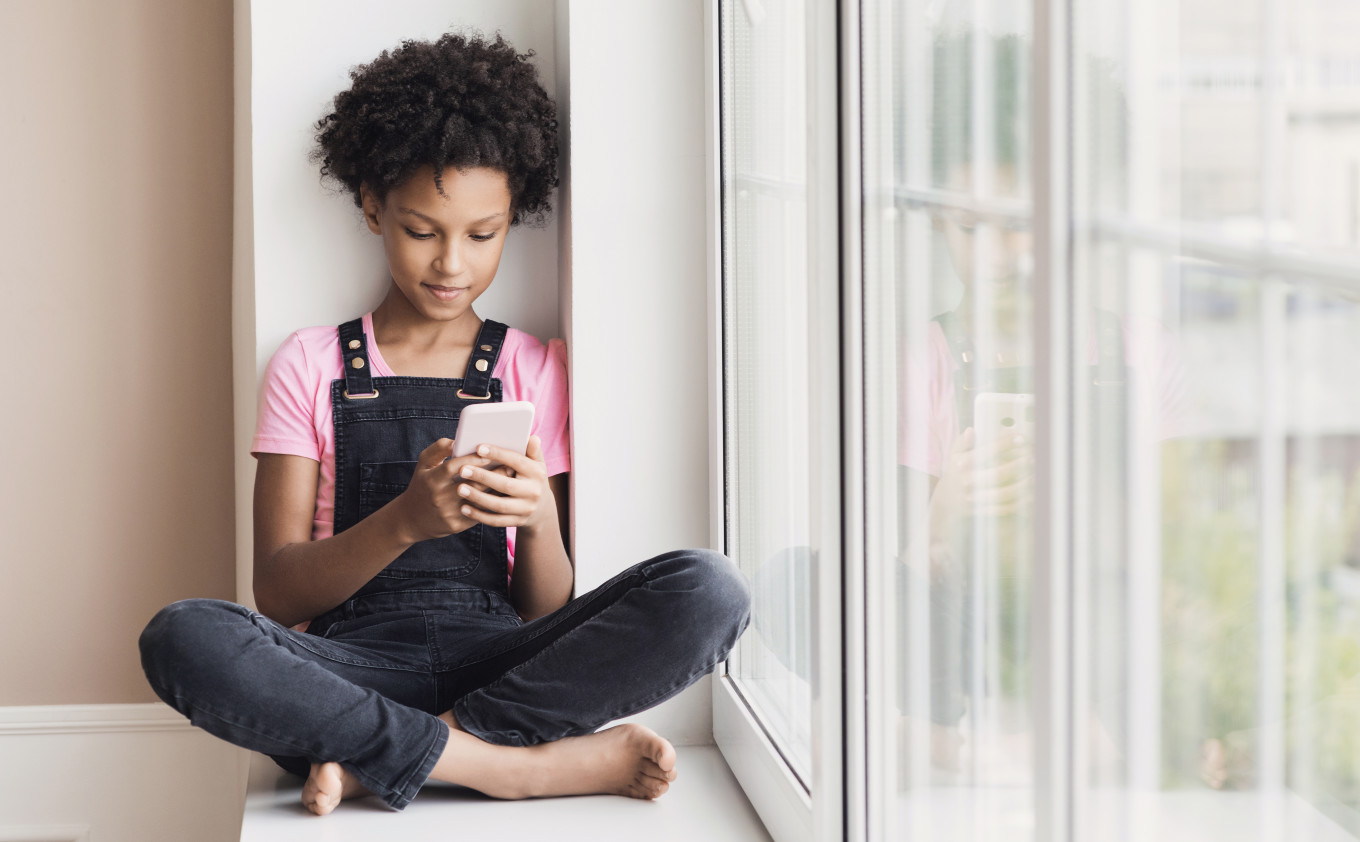
Encourage open conversations about emotions, mental health, and day-to-day experiences with your kids. This helps create a healthy parent-child relationship.
Consider the conversation about social media. This would be a great time to understand your child's motivation to use social media and the kinds of platforms they are interested in. Let your child guide the conversation and learn from them. On Our Sleeves provides social media conversation starters to help parents and caregivers take action.
Learn about media literacy. The American Psychological Association and the US surgeon general highlight the importance of kids learning media literacy. Although you may feel your child is not ready for access to social media, this does not mean you cannot start the conversation about safe use and how to protect their privacy.
How To Talk to Teenagers About Mental Health & Social Media
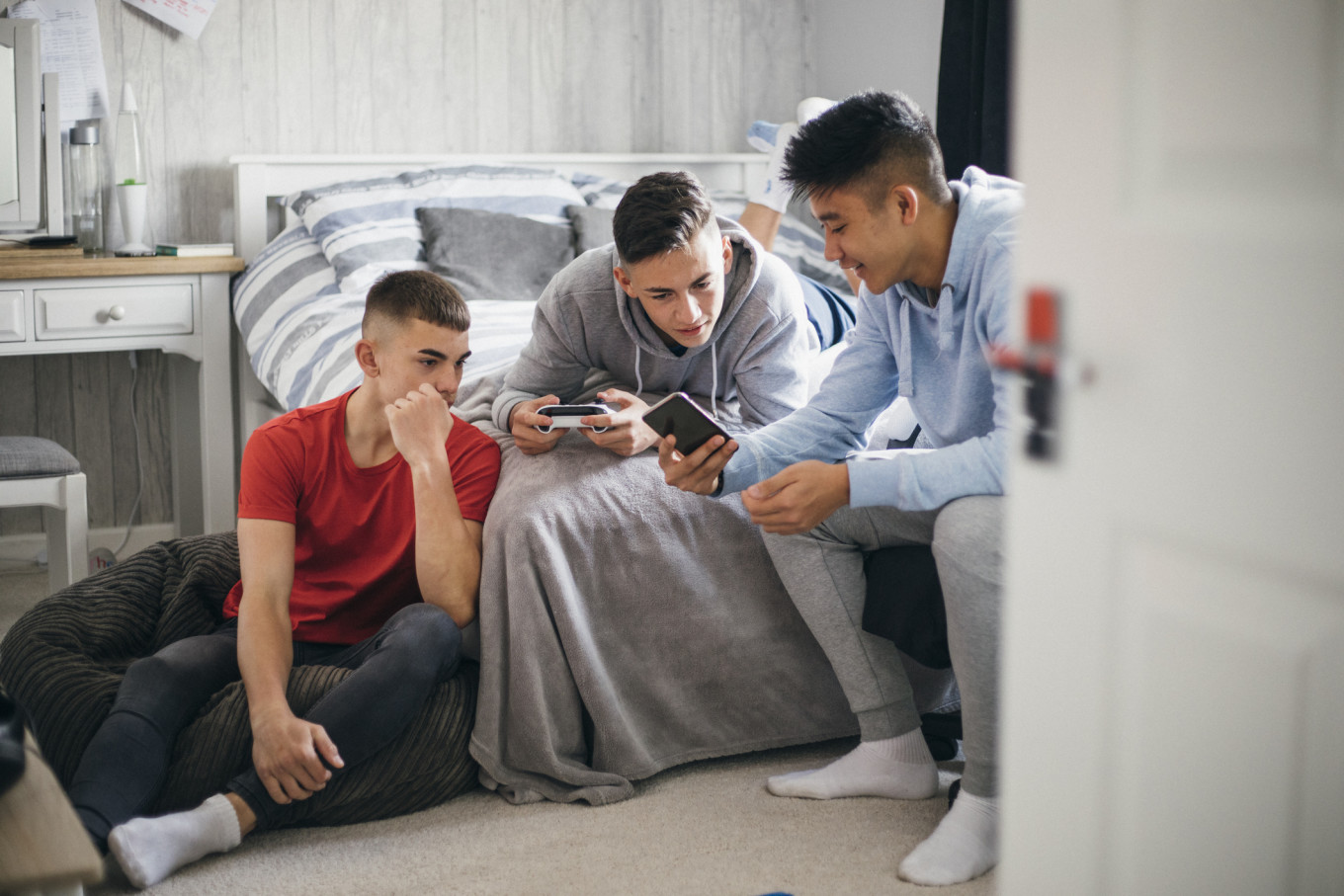
Bring together everything from previous discussions. Focus on a healthy parent-child relationship and communication. Think about their personality and developmental stage and whether they are responsible enough for access to social media. If the answer is yes, then it is important that parents set clear rules and expectations ahead of time.
Use a social media family plan to help guide that discussion. After you've given access, it's important to continue to check in on how children are using the platforms and how they feel.
Monitor for problematic use or any changes in a child's mood or behavior.


